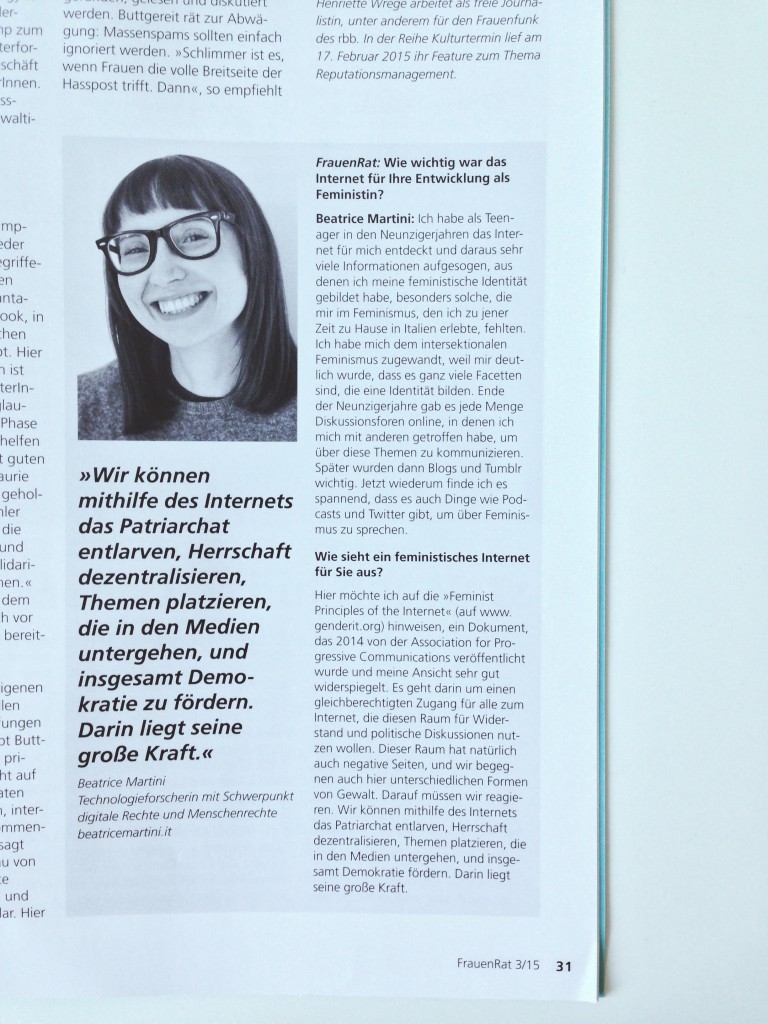A few weeks ago journalist Christine Müller invited me to share my thoughts on feminism and the Internet for the German feminist magazine FrauenRat, and the issue featuring our conversation is out now!
You can find our exchange in German in the picture above, and in a liberal English translation below. The issue also features interviews with great women whose work I admire, such as Laurie Penny, Billene Seyoum Woldeyes, Anne Wizorek and more, and if you’d like to get a copy you can order it here.
How important was the Internet for your development as a feminist?
As a teenager, the Internet was very important for me. Online I discovered a lot of information which contributed to the development of my feminist identity. Reading and researching online also helped me to realise what was missing from the feminist discourse I had experienced so far in my home country, Italy – an intersectional perspective, which offered me the opportunity to focus on the complexity of human identities and contexts.
At the end of the 90s discussion forums offered a great chance to listen to, learn from and meet others interested in talking about these topics. Later came blogs, Tumblr and more recently, Twitter and podcasts – all platforms offering the exciting chance to build spaces to learn and discuss about feminism.
What does a feminist Internet look like to you?
In this regard, I’d like to refer to a resource which represents very closely my take on the subject – The Feminist Principles of the Internet, an evolving document published by the Association for Progressive Communications in 2014.
A feminist Internet is universally, affordably and equally accessible, is a space where our movements and resistance can live, and provides the opportunity to express our political views. It can also present negative aspects of course, and can be a theatre of various forms of violence – it’s our responsibility to prevent, respond to, and resist this.
Most importantly, the Internet provides fundamental opportunities to challenge the patriarchy, decentralise power, focus on issues which are underrepresented in the mainstream media and promote democracy. And here’s where its power lies.
